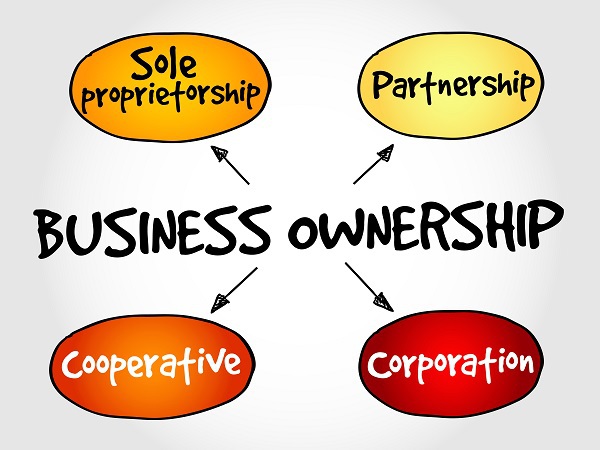
by Bill Miller | Sep 28, 2018 | Business
One of the first thing you’ll do when starting a business is choose a business entity. Sole proprietorship, partnership, limited liability company, and corporation are the most common business structures. However, there are advantages and disadvantages to each of them, especially when it comes to completing the necessary paperwork. Corporations are considered the most difficult business structure. If you are thinking of starting a corporation, you may be wondering about filing your Articles of Incorporation.
Forming a Corporation
A corporation is a legal entity separate from its owners. To form a corporation in Alabama, the new business owner needs to prepare the following documents:
- Domestic Name Reservation form to file with the Alabama Secretary of State.
- Domestic Business Corporation Certificate of Formation, also known as the Articles of Incorporation. Attach a copy of the Domestic Name Reservation form.
- A corporate record book. Officers keep minutes of director and shareholder meetings here, along with stock certificates and stock certificate stubs.
- Bylaws that state how your corporation will operate.
In this article, we’re concerned with the Domestic Business Corporation Certificate of Formation a/k/a Articles of Incorporation.
Contents of Articles of Incorporation
The Articles of Incorporation are sometimes referred to as the “legal backbone” of a business. Alabama corporations must prepare and file a Domestic Business Corporation Certificate of Formation or Articles of Incorporation.
A company’s articles of incorporation typically includes the following information:
- The name of the corporation, which must include “corporation,” “corp.”, “incorporated,” or “inc.”
- The street address and mailing address of the corporation’s principal office.
- Name, street address, and mailing address of the registered agent.
- The corporation’s purpose.
- How many shares the corporation may issue.
- Names and addresses of each incorporator(s).
- Names and addresses of each director.
Once the Articles of Incorporation document is signed, it’s ready to file. Instead of filing with the Alabama Secretary of State, though, it is filed with the probate court in the county where the corporation has its registered office. Corporations may amend Articles of Incorporation if necessary.
Consult with an Alabama Attorney Before Filing Your Articles of Incorporation
The attorneys at Miller Estate and Elder Law make it their business to put their clients first. We help our business clients make thoughtful choices and put together the paperwork they need. Contact Miller Estate and Elder Law at 256-251-2137 to schedule an appointment. Though our offices are in Anniston and Birmingham, we help clients in Talladega, Gadsden and surrounding communities.

by Bill Miller | Sep 14, 2018 | Business
The list of things a small business owner needs can be very long. Legal issues should be high on that list, though. Making mistakes on important legal decisions or failing to get the right advice can be devastating to a company. Let’s look at four legal needs of small business owners.
Choosing the Correct Business Structure
The most common business structures are sole proprietorships, corporations, partnerships, and limited liability companies. Each type of business entity has its own advantages and disadvantages that small business owners should carefully review. Choosing the wrong business structure makes a difference in:
- How the company will be formed,
- Who will manage the company,
- How taxes will be paid, and
- How much personal liability the owners are taking on.
For example, a couple named Harvey and Julia decide to open a small RV park. Because there are two owners with equal shares in the company, they will not be operating as a sole proprietorship. They are not interested in the formal structure of a corporation and dislike the double taxation. Harvey and Julia decide to form a limited liability company to take advantage of the tax structure and the protection from liability.
Negotiating and Signing Strong Contracts
Many companies rely on contracts to keep their teams afloat. Business owners should resist the urge to write those contracts themselves. A badly written or incomplete contract can be costly.
Two friends, Dave and Mike, run a small coffee shop near the local college. They have signed contracts with suppliers, their landlord, and a small marketing company. However, they care more about the quality of their lattes and the quality of their contracts. Because they failed to read the contracts carefully and have their attorney review them, they fell into some bad business relationships that cost them dearly.
Using Strong Non-Compete and Non-Disclosure Agreements
Even small companies may need protection from competitors and from misuse of confidential proprietary information. Two ways to do this are the non-compete agreement and the non-disclosure agreement
Julian S. was a key employee whose employer required him to sign a non-compete. This agreement may prevent him from leaving to work for a close competitor or from opening a similar business.
A non-disclosure agreement may prevent employees from stealing or misusing confidential information. Potential investors may be asked to sign a non-disclosure to prevent them from using or divulging data learned during investment discussions.
Complying with Government Regulations
It sometimes seems there are as many government regulations as stars in the sky. Complying with those rules and regs is difficult, but necessary.
Ronald M. ran a small print shop in Anniston. In addition to labor and employment laws, licensing and regulation, he also had to follow rules regarding the toxic chemicals he and his workers used every day. Violations of those rules and regulations could lead to big penalties and fines.
Consult with an Alabama Business Attorney.
The attorneys at Miller Estate and Elder Law make it their business to put their client’s needs first. Contact Miller Estate and Elder Law at 256-251-2137 to schedule an appointment or fill out our convenient Contact Form. We help clients in Anniston, Talladega, Birmingham, Gadsden and surrounding communities.

by Bill Miller | Aug 29, 2018 | Business
It’s often said: Good fences make good neighbors. There’s some dispute about the literal interpretation of that saying, which is taken from a Robert Frost poem. However, there are times when boundaries are a good thing. That’s especially important in business relationships where everyone needs to know what they can and cannot do. A good contract can make that happen.
Contracts Need to Be Complete
A good contract should include the terms and conditions agreed upon by the parties. What those terms and conditions are will be determined by the type of deal being memorialized. Some industries, like real estate, may have contract forms that are dictated by law.
Don’t be afraid to ask questions or point out omissions in a contract. Remember that contract could affect your life and your bottom line.
Contracts Should Be Clear and Unambiguous
The language in the contract should be clear, even if it seems like it’s legalese or fine print. When contract provisions are ambiguous or could be interpreted in more than one way, the party that drafted the contract is usually held responsible.
Parties are also responsible for disclosing any information pertinent to the transaction that led to the contract being written. For example, the seller of a property must disclose certain problems to the buyer of that property.
Contracts Need to Be Enforceable
All the parties must agree to the contract, freely and without being under duress. The parties also must have the ability to understand the contract.
Contracts Can Address Problems Before They Happen
In addition to just making sure the language is clear and complete, contracts include provisions covering how to handle contract disputes.
For example, the contract may state what courts will decide on major disagreements. If parties from different states fight about performance of the contract, in which state will they file the ensuing lawsuit? In an effort to avoid costly litigation, contracts may include language calling for alternative dispute resolution like mediations or arbitrations.
Force majeure provisions cover unavoidable delays in performance of a contract, which could head off potential litigation.
Always Talk to an Attorney Before Signing a Contract.
What may seem obvious on its face could actually have unintended consequences for everyone. Make sure you fully understand a contract before signing it.
The attorneys at Miller Estate and Elder Law assist clients with their business interests, including writing and analyzing contracts. For a free consultation, contact us at 256-251-2137 or use our convenient Contact Form. Although we’re located in Anniston, we also help clients in the Birmingham, Gadsden, Hoover, Talladega, Vestavia Hills, and surrounding areas.

by Bill Miller | Aug 7, 2018 | Business
A few years ago, Marty and his partners opened a business: The Choccolocco Metal Fencing Company. They chose to form as a limited liability company or LLC. Now, as their business has grown, they wonder if another business entity would better suit their needs. They begin to explore the idea of converting their Alabama business from an LCC to a corporation.
Deciding Factors
The limited liability company structure has become one of the most popular business entity types in the country. Corporations, however, have a long history and, for some, offer the best structure. Let’s compare LLCs to Corporations in a few key categories:
- Formation. To form an LLC, one or more owners (called members) file articles of organization and usually prepare some type of operating agreement. Corporations also file formation documents with the state in which they are located. Shares are issued to shareholders and a board of directors is appointed to manage the corporation.
- Liability. LLC owners have some protection from liability, while avoiding the double taxation of the corporate structure. Corporations also provide liability protection to their owners – the shareholders.
- Taxes. LLCs are pass-through businesses. Income ‘passes through’ to the owners, who declare it on their personal tax return. Corporations, as separate entities, are taxed on their profits. Shareholders will also pay tax on any dividends they receive.
An LLC can convert to another business entity type, including corporate.
Steps to Take
According to Alabama law, all of the members of an LLC must approve of the terms and conditions of the conversion. Then, the LLC can do the following to convert:
- Get a name reservation certificate for the new LLC from the Secretary of State.
- File a certificate of formation, a statement of conversion, along with the name reservation certificate, with the Secretary of State’s office.
Please note that it is not necessary or recommended to terminate your LLC prior to converting it.
Once the corporation is formed, the owners have a few more things to do:
- Prepare corporate bylaws,
- Elect officers and directors,
- Hold your initial meeting of the Board of Directors,
- Issue stock certificates,
- Change documentation to reflect the new name,
- Decide whether to file an S corporation election with the IRS, and
- Plan to file your first annual report with the state.
Property, debts, and liabilities of the LLC transfer to the new corporation.
Talk to an Attorney First.
Forming or converting a business may sound simple, but every case is a little different. Make sure your company meets all legal requirements to avoid trouble down the road.
The attorneys at Adams & Miller understand the business needs of their clients. Contact Adams & Miller, P.C. at 256-251-2137 to schedule an appointment. Though our offices are in Anniston and Birmingham, we help clients in Talladega, Gadsden and surrounding communities.

by Bill Miller | Jul 24, 2018 | Business
Starting a business is exciting, but there are so many decisions to make. One choice affects every other aspect of the business: choosing which of Alabama’s business entities is right for you.
Sole Proprietorship
One of the easiest types of business to start, a sole proprietorship has only one owner.
Sole proprietors do not have to file formation documents or be registered with the State of Alabama. However, sole proprietors may need to apply for licenses and registrations depending on the type of business they operate.
Decision-making is straightforward. Management is flexible, because the owner does not have to answer to shareholders, other owners, or a board of directors. However, getting opinions and backup from other owners could lessen the stress of day-to-day operations.
One disadvantage to sole proprietorships is that the owner is completely liable for the business. In fact, the owner’s personal assets may be vulnerable.
Partnership
Two or more people are required to form a partnership. Typically, the partners will sign some kind of agreement to form the partnership, although it not required by law. As mentioned above, though, state and local governments may require licenses or registrations to operate within their jurisdictions.
Management and decision-making is still fairly flexible. Partnerships can be unstable, though, and dissolve when one or more partners leave the business.
Partners may find it difficult to sell or otherwise transfer their business interest.
Corporation
This is one of the more complicated business entities. Corporations are legal entities separate from the persons who own them.
Forming a corporation in Alabama requires filing documents, including a Domestic Business Corporation Certificate of Formation. The completed certificate and filing fees should be filed with the Office of the Judge of Probate in the county where the corporation’s registered office is located. Additional documents are filed, including a Name Reservation Certificate from the Alabama Secretary of State’s office. A charter that states the purpose of the business is sent to the new corporation.
One big advantage to the corporate structure relates to liability. The owners of the corporation have limited liability for the corporation’s actions. It’s also easier for shareholders to transfer or sell their interest in the corporation.
Taxation is a disadvantage, however. The corporation’s income is taxes, but also the dividends paid to the shareholders. Corporations are also required to file annual reports.
Limited Liability Company and Limited Liability Partnership\
Some feel these structures offer the best of both worlds: limited liability of a corporation, but the lower taxes of a partnership. LLCs and LLPs are relatively inexpensive and easy to form.
New owners do need to register with the Alabama Secretary of State/ and file a Certificate of Formation with the Office of the Probate Judge.
As the names indicate, owners of these business entities enjoy limited liability. Taxes are paid on a pass-through basis; the LLC and LLP are not taxed, but the owners are.
Learn More About Forming a Business in Alabama.
The attorneys at Miller Estate and Elder Law efficiently assist their clients with business matters. For a free consultation, contact us at 256-251-2137 or use our convenient Contact Form. Although we’re located in Anniston, we also help clients in the Birmingham, Gadsden, Hoover, Talladega, Vestavia Hills, and surrounding areas.

by Bill Miller | Jul 10, 2018 | Business
Pete J. had always wanted to start his own business. He finally decided to take the plunge this year. After working for other companies for year, Pete knew that he would have to follow certain laws and regulations to get his business up and running. The first thing he had to learn was how to form a business in Alabama.
Alabama Business Entities
Understanding the different business structures allowed in the State of Alabama was important. There’s more involved than just whether you want your business to be called an “LLC” or a “Corporation.” Fortunately, Pete could choose from several types of businesses:
Sole Proprietorships have one owner. While sole proprietorships require very little paperwork and fees to form, there is no protection from liability. The business owner may have trouble raising capital and obtaining long-term financing. Still, some people may consider it their best option.
Partnerships have two or more owners and are fairly easy to form. However, at least one partner has unlimited liability and transferring or selling a partnership interest may be difficult.
Corporations are a separate legal entity apart from the owners. Liability is limited, and ownership interest is easier to sell or transfer. However, the corporation structure is more heavily regulated. Also, corporations are doubly taxed.
Limited Liability Corporations and Limited Liability Partnerships offer better tax status than a corporation with great liability protection.
Forming Your Business
The procedure used varies according to the business entity chosen.
Generally, the first steps are:
- Picking your business name.
- Filing a trade name or doing business as, although this is optional.
- Getting all licenses and permits needed for your industry.
- Applying for an Employer Identification Number.
Sole proprietorships and general partnerships do not have to file paperwork with the Alabama Secretary of State to start up. However, limited partnerships file a Domestic Limited Partnership Certificate in the county where they do business.
As we noted above, corporations require more work to get off the ground:
The corporation’s name must be available, meaning no one else is using it.
You must also file Articles of Incorporation, along with the Domestic Business Corporation Certificate of Formation and a Certificate of Name Reservation.
Choose a registered agent.
Prepare Bylaws. They don’t have to be filed with the State, but bylaws describe how a corporation will work.
It is critical to weigh the advantages and disadvantages of each type of business entity before choosing one.
Ready to Start Your Business?
At Miller Estate and Elder Law, we make it our business to put our client’s needs first. We assist our clients in making legal decisions regarding their business interests. For a free consultation, contact us at 256-251-2137 or use our convenient Contact Form. We have offices in Anniston and Birmingham and we assist clients in the Leeds, Gadsden, Hoover, Talladega, Vestavia Hills, and surrounding areas.





